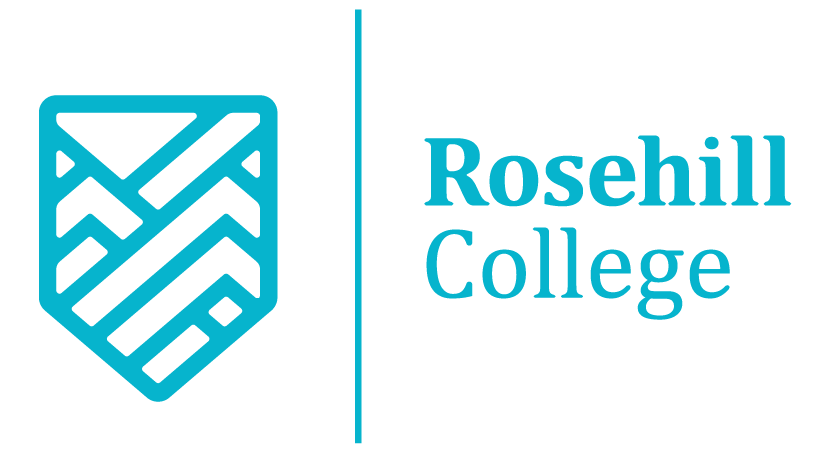Document Title: Academic Integrity and Plagiarism Policy
Document Number: AIP-001
Effective Date: June 8, 2024
Review Date: June 8, 2025
1. Purpose of the Policy
This policy establishes the standards for academic honesty at Rosehill College and outlines the penalties for plagiarism. It aims to uphold academic integrity by ensuring that all work submitted by students is their own and appropriately credited. This policy complies with Clause 1.8 of the Standards for RTOs 2015 and the National Code 2018.
2. Policy Statements
2.1 Academic Integrity
- Rosehill College is committed to promoting a culture of academic honesty and integrity.
- Students must act with honesty and integrity in all academic work, ensuring that submitted work is their own or properly cited.
- Academic staff must support students in understanding and upholding standards of academic honesty.
2.2 Definition of Plagiarism
- Plagiarism: The act of using another person’s work, ideas, or expressions without proper acknowledgment, presenting it as one’s own.
- Cheating: Dishonest behavior by a student to gain an advantage in assessments or exams.
- Collusion: Unauthorized collaboration with others on assessments intended to be completed individually.
2.3 Standards of Academic Honesty
- Original Work: Students must submit original work for all assessments, including essays, reports, projects, and examinations.
- Proper Citation: Students must correctly acknowledge sources of information, using proper citation and referencing styles.
- Avoiding Cheating: Students must not use unauthorized materials or devices in assessments.
- No Collusion: Students must not collaborate on individual assessments without permission.
2.4 Information and Training
- Orientation: Students receive information on academic integrity and plagiarism during orientation.
- Ongoing Education: Academic integrity is reinforced through workshops, resources, and support services.
3. Procedures
3.1 Prevention of Plagiarism
- Education: Provide students with resources and training on how to avoid plagiarism and correctly cite sources.
- Assessment Cover Sheets: Require students to sign a declaration of authenticity with each assessment submission.
3.2 Detection of Plagiarism
- Manual Review: Use manual methods to check for plagiarism, such as reviewing the writing style, consistency, and cross-checking with known sources.
- Sample Checks: Randomly sample and review submissions to detect potential plagiarism issues.
- Verification: Investigate and verify potential plagiarism cases through detailed review and evidence gathering.
3.3 Responding to Plagiarism
- Notification: Inform students of alleged plagiarism, allowing them to respond.
- Investigation: Conduct a fair investigation, reviewing evidence and student explanations.
- Penalties: Apply appropriate penalties based on the severity of the plagiarism, as outlined in the penalties section.
3.4 Penalties for Plagiarism
- Minor Offense:
- Description: Small portions of text without citation; unintentional errors.
- Penalty: Warning, requirement to redo the work with proper citations.
- Moderate Offense:
- Description: Significant portions copied; failure to cite sources properly.
- Penalty: Zero for the assessment, requirement to redo the work, academic probation.
- Major Offense:
- Description: Extensive copying; intentional plagiarism.
- Penalty: Zero for the assessment, failing grade for the course, potential suspension or expulsion.
3.5 Appeals
- Right to Appeal: Students have the right to appeal decisions related to plagiarism penalties.
- Appeal Process: Submit an Appeal Form for Plagiarism Decisions within 14 days of the decision.
3.6 Record Keeping
- Documentation: Maintain records of all plagiarism incidents and penalties in the student’s file.
3.7 Review Compliance
- Monthly Review: Include plagiarism issues on the agenda for RTO Management Meetings.
- Annual Review: Conduct annual reviews of academic integrity practices using ASQA RTO Self-assessment tools.
4. Responsibilities
4.1 Academic Manager
- Enforcement: Ensure the enforcement of academic integrity standards and manage plagiarism incidents.
4.2 Trainers and Assessors
- Detection: Identify and report instances of plagiarism, cheating, and collusion.
4.3 Students
- Compliance: Adhere to the standards of academic honesty and integrity as outlined in this policy.
5. Document Control
- Version Number: V1.1
- Approved By: CEO
- Approval Date: June 8, 2024
- Review Date: June 8, 2025
Rosehill College
Level 2 & 4, 616-620 Harris Street, Ultimo NSW 2007, Australia
Phone: +61 (02) 7228 0008
Email: info@rosehillcollege.edu.au
